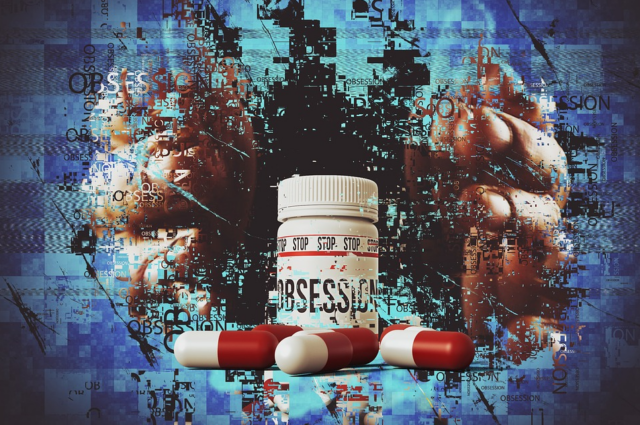
An addiction is a challenging, dark, and confusing phase where one can either overcome or succumb in the form of illness and possible death. The causes of addiction range from one individual to the next and may include trauma, mental disorders, and negative thought patterns.
Alcohol, drugs, gambling, and sex are some addictions a person can battle. The reason is that these provide a temporary high, which provides a certain level of painkilling of the battles that one may be carrying. Therefore, it is the ‘temporary high’ that one continuously craves that leads to addiction.
The dangers of addiction, however, include physical deterioration, mental instability, broken relationships, financial turmoil, and, in some cases, suicide. Although loving an addict may be difficult in that you may not be sure how to support one, love is one way an addict can overcome because you offer companionship, hope, and a belief in them that society might no longer have.
Here are some of the ways that you can help someone with an addiction.
1. Recommend Rehabilitation

A rehabilitation center is a space where your loved one can check in for some time and receive professional help from licensed therapists. They can find licensed therapists at https://www.jacksonhouserehab.com/.
Usually, addiction is merely a symptom of underlying dynamics and trauma that require professional help. Your loved one might not be comfortable discussing such issues, or they may have shared them with you. However, you might not know how to guide them through the struggles positively. Some of the struggles that your loved one may be facing may include but aren’t limited to:
Depression
Depression is a mental illness that affects one’s hormones and brain activity leading to intense feelings of sadness and heaviness. Depression, however, mustn’t be confused with periods of sadness, which is a natural dynamic of life as depression is clinically diagnosed and requires medication as a part of the intervention.
Depression can accompany suicidal thoughts because each waking moment may be difficult for your loved one. The loss of appetite, insomnia, disinterest in socializing, body aches, and negative thoughts that may consume them may become too heavy to bear.
Recommending rehab, however, is a loving gesture as they will have professionals who can practically guide them through depression while simultaneously helping them overcome the addiction. Licensed therapists provide a judgment-free space for your loved one to discuss reasons that may have led to depression, and together they derive tailor-made solutions.
Trauma
In some cases, people become addicts as a means of escaping trauma in their lives. Some examples of trauma include sexual assault, parental abandonment, toxic intimate relationships, and physical accidents. They may face recurring thoughts that lead to the constant abuse of substances, which leads to addiction.
Licensed therapists in rehab help your loved one rewire their brain and form positive thoughts, which may help reduce substance abuse.
Life Circumstances
You may or may not be aware of the difficult life circumstances that your loved one may be experiencing. Situations such as health scares, the death of a loved one, and financial instability may all lead to one becoming an addict. The reality of their situations may be too painful to face in a sober state, and they may resort to the temporary high, confidence, and comfort that substances provide.
In rehab, they meet other people who may be in similar situations, resulting in substance abuse. Realizing that they are not alone in the daily struggles that may present themselves in life may give them hope that, together, they can learn coping strategies and enjoy life to the best of their ability. Without a space such as rehab, they may become isolated and begin to wonder if they are the only ones who experience such troubles, which may lead to suicidal thoughts.
2. Extend Empathy

One of the added struggles that an addict face is a judgment from society. Society judges addicts because they think they have completely failed in life and have let their loved ones down. It comes in different forms, such as hurtful comments, gossip, looks of scorn, or a complete dissociation from the person. These are some of the reasons why addicts find it difficult to express themselves and the struggles that they face.
But you can show empathy to them to make them feel that they’re not alone in their battle. Extending empathy means being able to put yourself in your loved one’s shoes and expressing the comforting words, words of encouragement, positive affirmations, and understanding that may help them in their point of need. It is not to say that extending empathy is easy or comes naturally in such a case, as you may have also suffered in your relationship with the person due to their addiction.
You may be in a position where you need some space from your loved one, so recommending therapy and rehab may be the best possible loving gesture at that point. You won’t be shunning them. Instead, you are encouraging healing for both of you in your respective spaces.
3. Participate In Positive Activities
Participating in positive activities with your loved ones encourages them to break free of their addiction. For example, you can join community clubs such as sporting teams, gym sessions, dancing clubs, and swimming clubs. Such activities may help distract your loved ones from the destructive activities they usually engage in, such as drinking, smoking, or gambling.
It is not to say that distraction is the best way to help them break free from addiction, but they may enjoy the fulfilling feel-good hormones released through such activities compared to the temporary high that substances provide.
In some cases, when a loved one is struggling with addiction, they might not enjoy socializing, meaning that the above activities may be overwhelming. Alternatively, you can find an activity to learn together using the online tutorials. The point is to help them utilize their mind and body in positivity rather than destruction.
4. Avoid Enabling

Enabling means facilitating your loved one’s activities of substance abuse. It may be in the form of finances, escorting them to the bar, inviting them over to your home when you are hosting a party with alcohol, or simply turning a blind eye to their addiction to maintaining the peace. Although you may think that you love them by giving in to their requests or helping them temporarily numb their pain, enabling only helps them spiral.
You can avoid enabling by gently communicating that you will not be involved in any activity that leads to them accessing substances. It may upset them, and in some cases, they may cut you out of their life for that time, and in some cases, they may get violent, which is why it’s safer for your loved one to be in a controlled environment such as rehab. Rehab may save your relationship as neither one will have access to the other, meaning you aren’t able to enable them, and they can’t ask for favors.
5. Be Trustworthy
When your loved one is fighting an addiction, they are at their most vulnerable, and in some cases, you may witness challenging situations that they may be in. You may see them in physical pain resulting from substance abuse, such as physically shaking,
loss of voice and memory, or prolonged sleeping. In this digital age, some may find this entertaining and record or take photos of their loved ones in such vulnerable positions and share with others or upload them on social media platforms.
Usually, such actions are performed in ignorance to minimize the situation. However, whether your loved one expresses it or not, they might not trust you in their vulnerable moments again because you would have exposed them rather than protect them from ridicule and judgment.
Being trustworthy in such a scenario means calling for professional help rather than taking photos and videos. You can contact a medic or a therapist, and they will be able to assess the situation and advise accordingly. Not only do you express your love by relying on professionals and not exposing them to the masses, but you may also save their lives. In some cases, we can’t tell whether they are at a dangerous point, whereas professionals can.
6. Give Them Space

As much as you are concerned as to whether your loved ones may harm themselves if you leave them alone, in some cases, space is what they need for healing. For example, suppose they returned from rehab. In that case, they may need time to process all the life skills, therapeutic lessons, exercises, journaling techniques, and activities they need to include in their lifestyle. They must overcome the mental, emotional, and physical struggles that may have caused the addiction in the first place.
They may also require time to connect with others in the same position as they are, as this is important for them not to feel isolated. Try not to take it as if they no longer care for your presence or prefer the new connections they formed while in rehab. These are all positive steps to healing that may require them to spend time alone. You can still check in on them, but you might not hear from them as frequently as you used to, which is perfectly fine.
7. Listen To Understand
Sometimes, when loved ones share their struggles or rehab experiences, you may feel pressured to contribute to fixing the problem. However, in most cases, your loved one wants to feel understood rather than be viewed as a project that requires fixing and panel beating.
Listening to understand means watching their body language as they express themselves and hearing the words they aren’t verbalizing. It may also mean avoiding giving examples or referring to yourself in certain situations and acknowledging their experiences as significant and unique. Physical gestures such as hugs and hand-holding show that you are also listening to understand rather than responding, fixing, or judging.
8. Be Patient

Overcoming addiction isn’t a linear process. For some people, regression may occur before they become clean. It means returning to the substance after spending time without it. There are different reasons for regression, including:
- Physical pain from the absence of the substance that the body was accustomed to
- Negative peer influence
- Easy access to substances
- Enabling from loved ones
- Facing triggers without professional guidance
You may become frustrated whenever you notice that your loved one regresses more than you expected. You have to practice patience with your loved ones as this encourages them to get back on track when they see that you aren’t losing hope in them. You can also continuously encourage them to visit rehab for as long as it takes for them to reach complete healing.
Conclusion
As the loved one of someone struggling with addiction, you also face difficulties supporting them back to wellness. However, love is required for them to find the strength and courage to overcome.
You can encourage them to check into rehab, where licensed professionals guide them to navigate the underlying dynamics that may have led to substance abuse. The fact that you would have encouraged them to look beyond the surface is one of the most significant love gestures you can extend. Empathy also goes a long way when society begins to judge your loved one. You can also encourage fun activities, which may help distract them from negative interactions and spaces that lead to substance abuse.
Avoid enabling their substance abuse, whether financially or socially. You also have to be trustworthy by protecting their dignity and image as much as you can. Giving your loved one’s space also helps them process their situation, and you may have to be patient whenever your loved one regresses, as this may be a possibility.
Addiction is a difficult phase to experience in life. However, with your love, encouragement, support, and resources, your loved one can overcome and lead a life of holistic health. Your love can go a long way, but remember to pour in your cup before you do for others.









